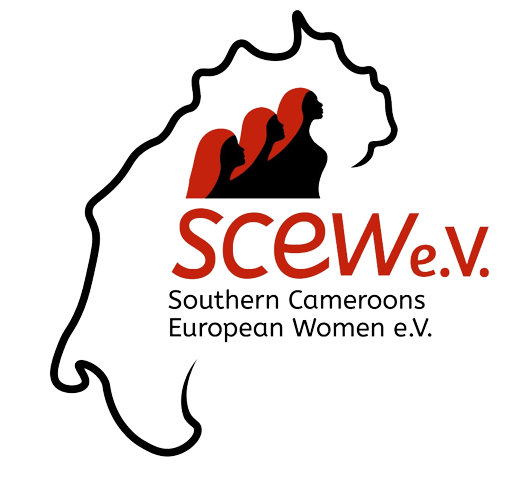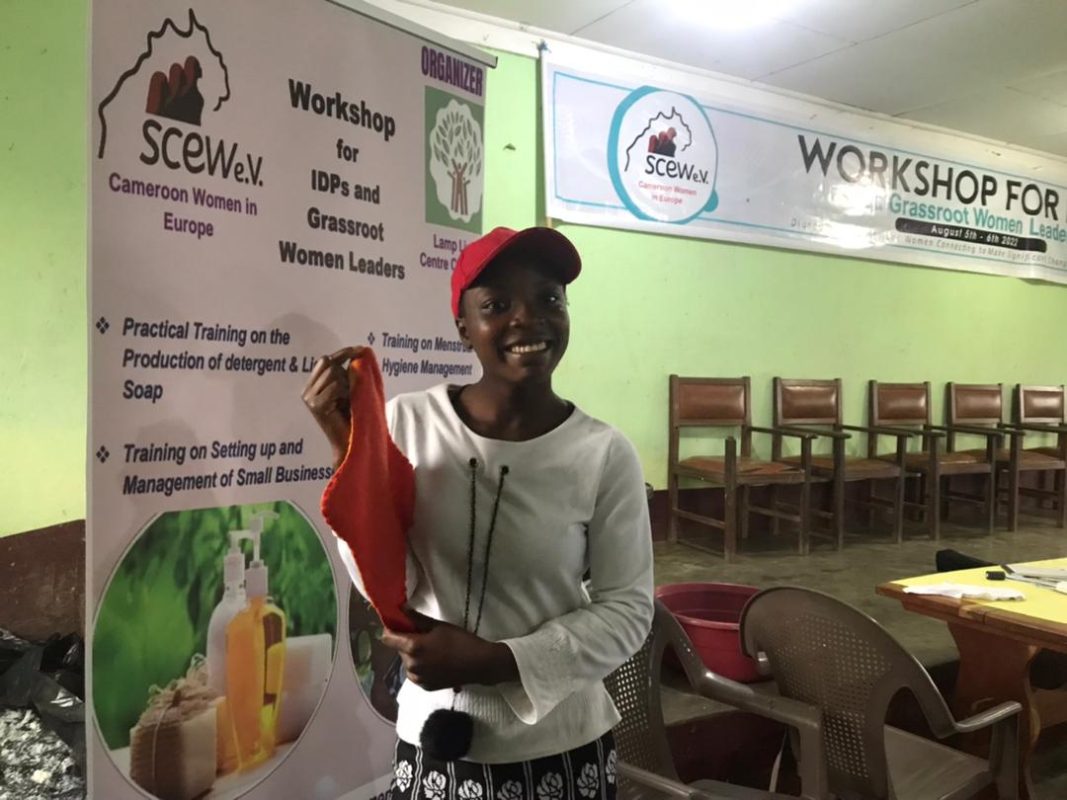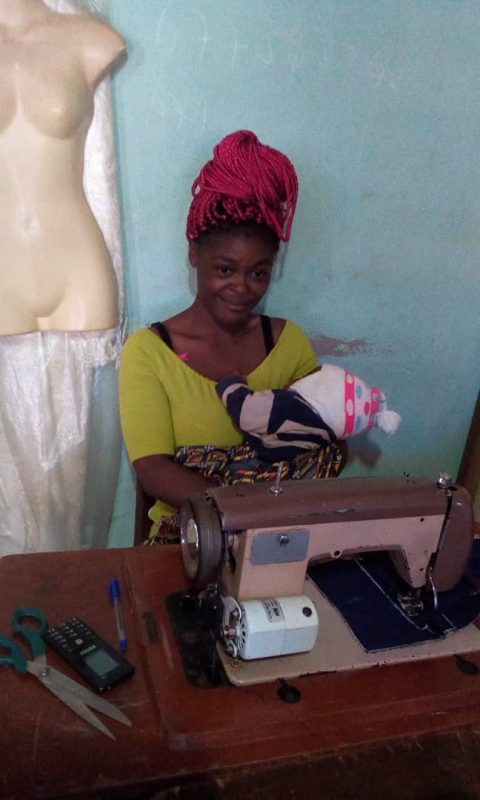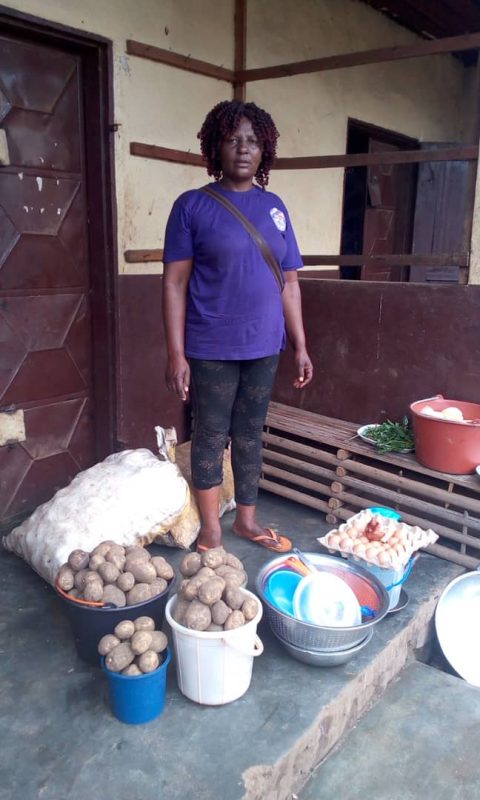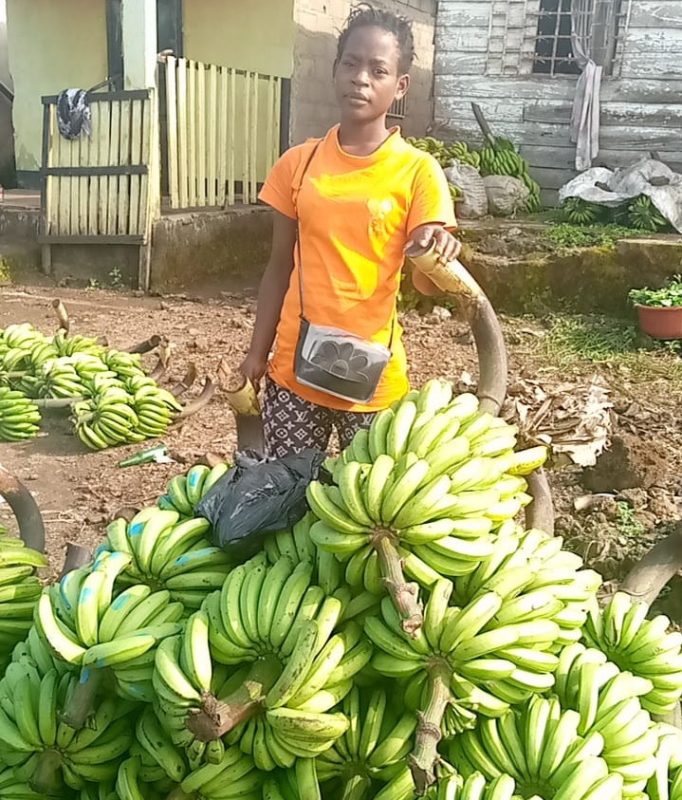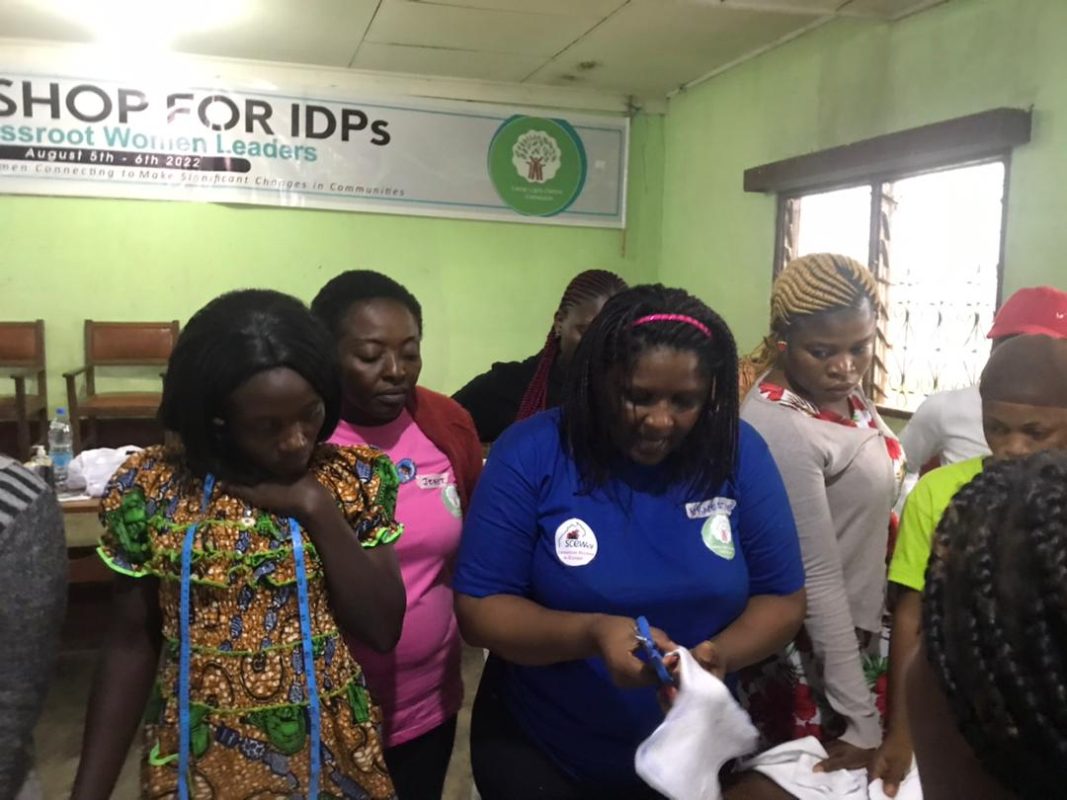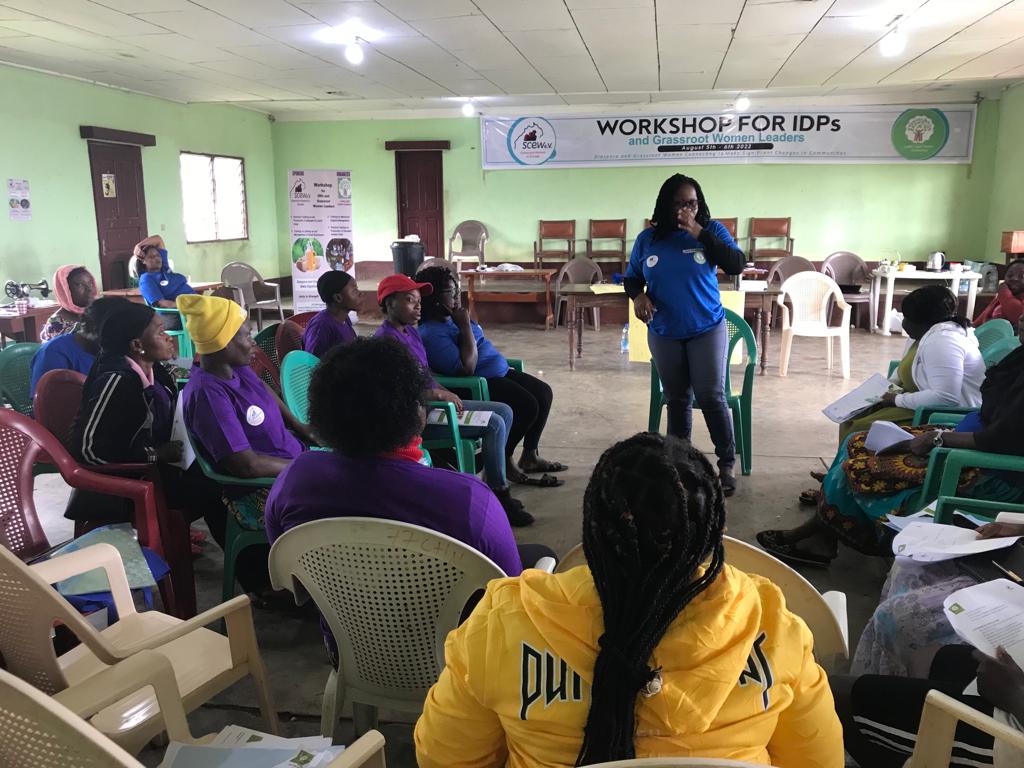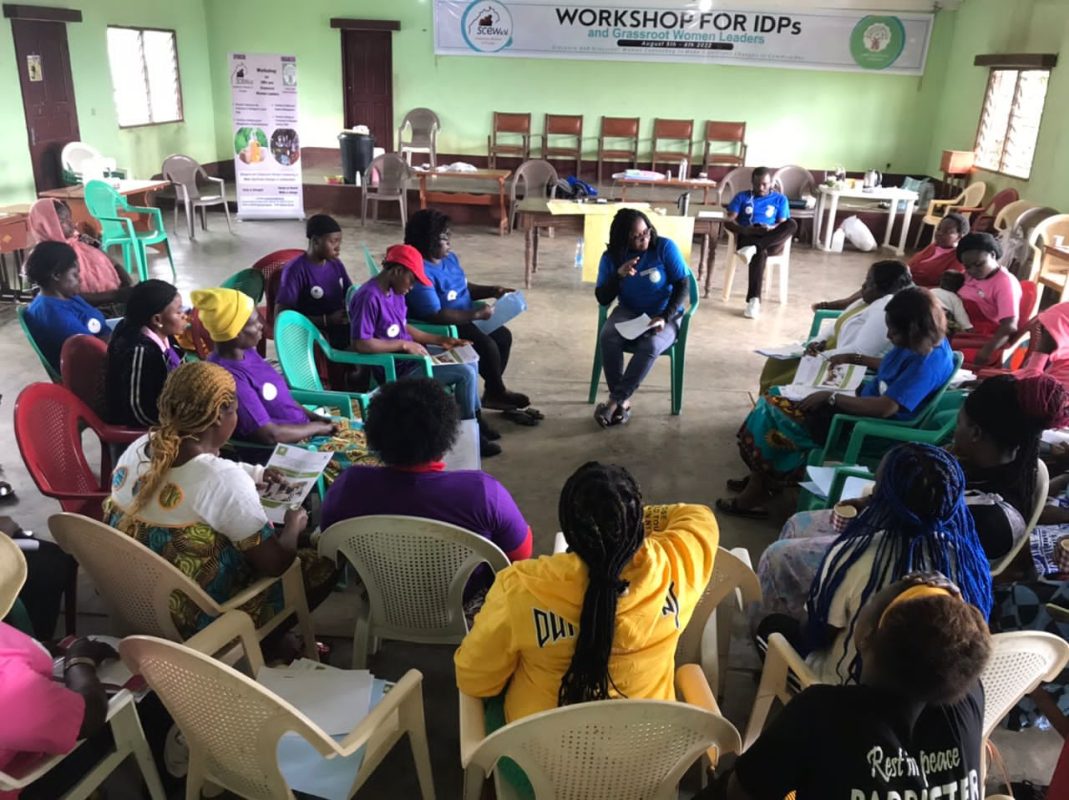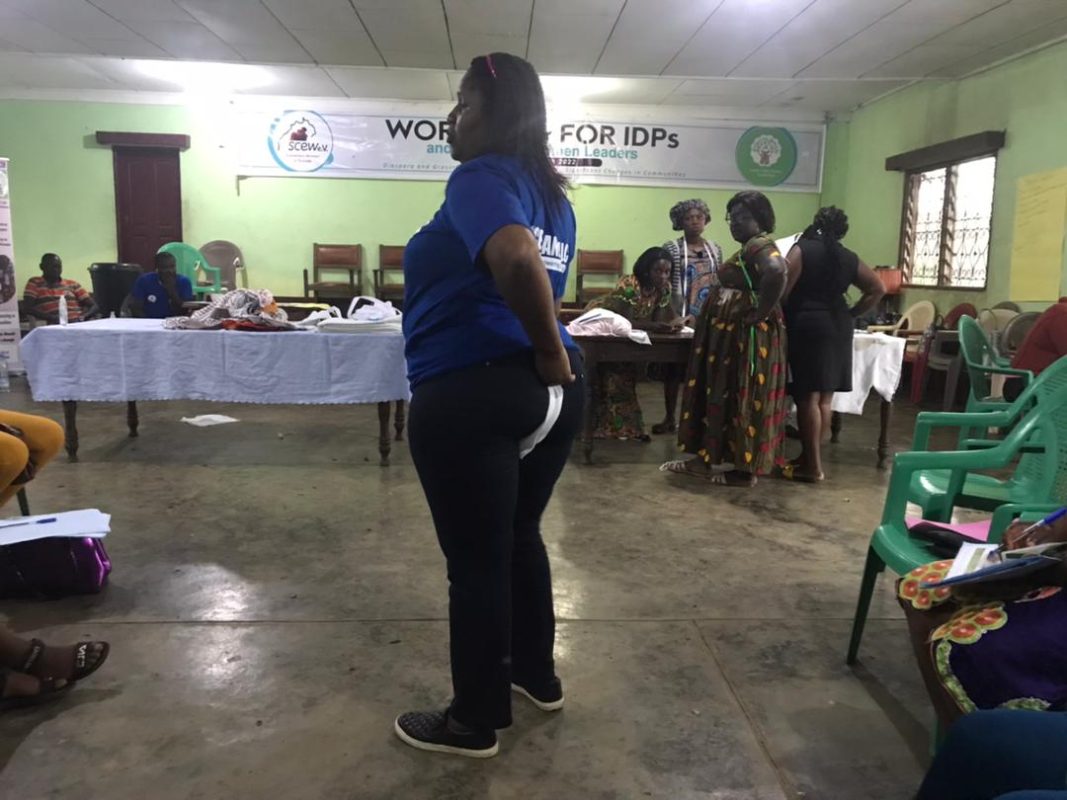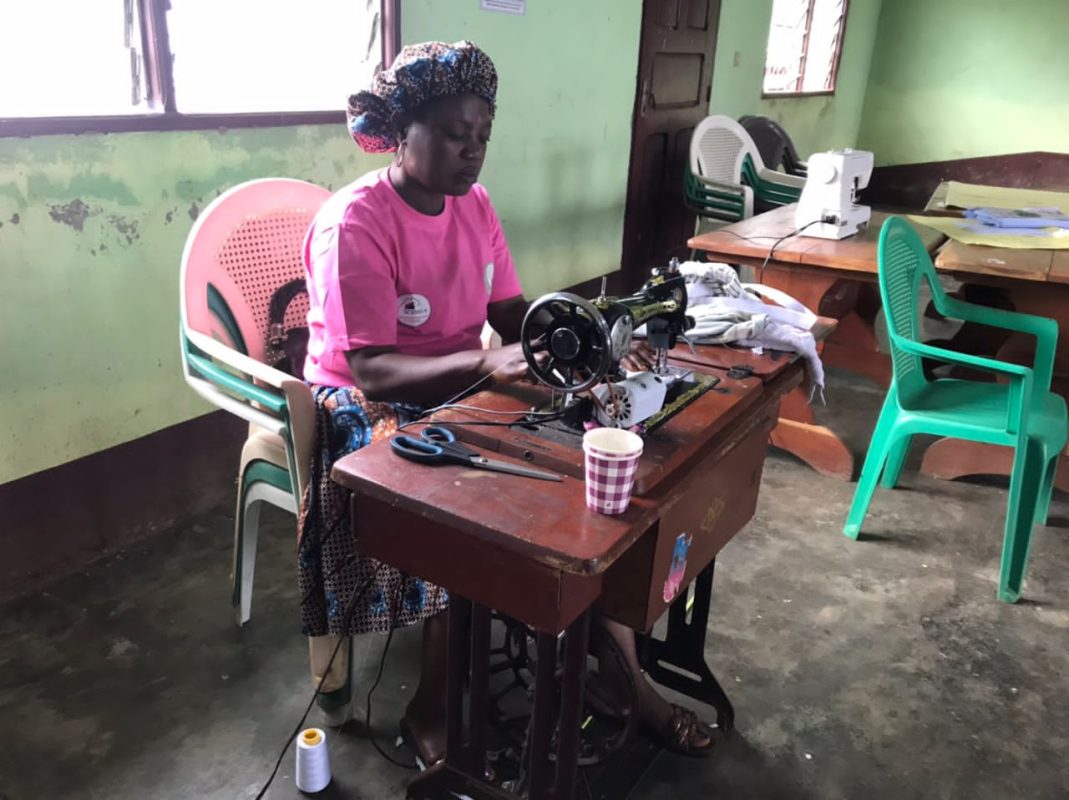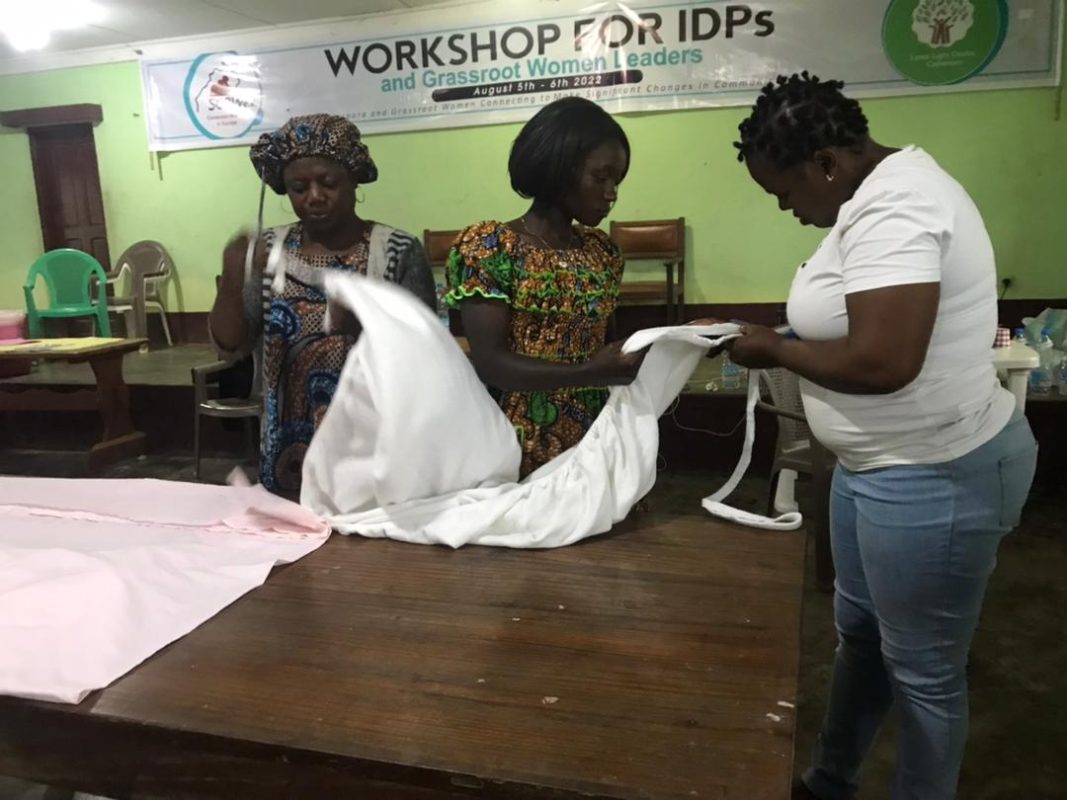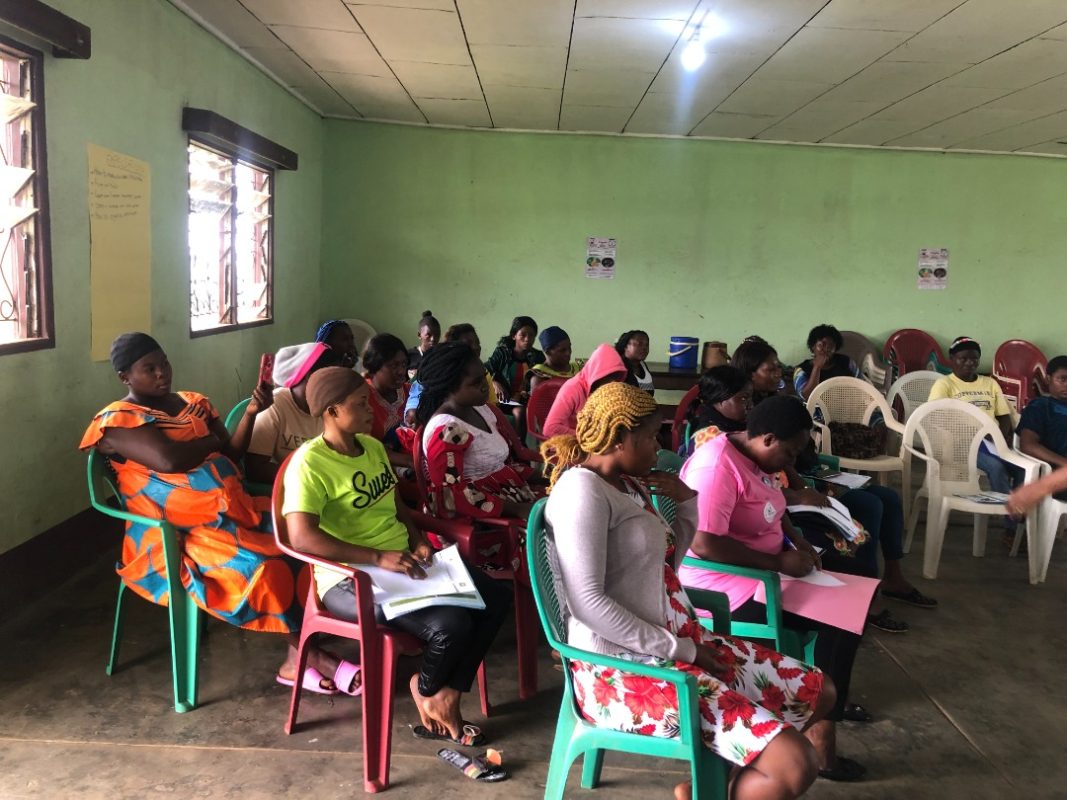We focus on empowering Grassroots women and girls in war-torn regions Cameroon. We do this by training them in the production of re-usable pads and detergents, production of spaghetti, garri, corn flour and other foodstuff.
We empower grassroots women to wealth creators by training them in the following trades: Hairdressing, Catering, Decoration, Tailoring, Piggery, Poultry Farming, and other agricultural and income generating activities.
The program begins with an assessment workshop followed by theoretical and practical lessons. At the end of the training, necessary tools are purchased by our Community-Based NGO Partner and handed to the Trainees. The Community-Base NGO-Partner monitors the Trainees for six to nine months and if necessary, longer, after the Training ends, to ensure the Trainees use the tools and acquired skills to generate income of their own.
The aim is to enable the Grassroots women to be able to generate income of their own, so that they can cater for themselves and for their families.
In addition, we provide skills Training in Leadership and educate the women and girls on all gender issues.
In working with Grassroots women from all trades, religious believes and political views, we build a solid and trustworthy Network system. We want to enable the Grassroots women to feel their own strength, protect their dignity and tell their stories. This is the power of Sisterhood!
The continued disparities between men and women, remain a global concern as women continue to experience social isolation, economic vulnerability, and lack of access to health care information. In Cameroon, women are still affected by high levels of poverty, discrimination, low social status, illiteracy, limited access to resources and credit, poor access to markets and negative sociocultural practices that foster violation of their rights. In addition to this, the ongoing armed conflict in the Anglophone regions makes life almost unbearable for women and girls. The pandemic has even worsened off the already deplorable situation of war affected persons in the conflict regions in Cameroon.
Gender equality is a key requirement for development. Equal access for women to economic, social, and political resources is an elementary human right. Gender equality is a necessary basis for economic and human development worldwide. To the girls and women in war-torn Anglophone regions of Cameroon, lasting peace and stability is also a very important component for self-realisation and economic growth.
We focus on empowering girls and women most especially those in the hinterlands
Seed Funding Award is an ongoing projected that was initiated in 2022. The targeted group are Grassroots women in the hinterlands in the Northwest and Southwest regions of Cameroon who are suffering most from the effect of the war coupled with the pandemic. The aim is to empower these women by providing with a small Funds of $50 each to restart their business or boost an existing one. This is an equivalent of 30.000CFA which is much money for a war affected woman in third world country. This project will be launched twice in 2023. In April and in September where in each edition 15 Grassroot women making a total of 30 Grassroots women with the best project ideas will be selected and given each 30.000CFA ($50). The implementation and monitoring will be done by our Community-Based NGO-Partners. The gaol is to empower Grassroots women to be able to generate income of their own so that they can cater for themselves and for their families.
The MHM project started last year, and we plan to carry it out in many other communities. In 2023 the project will be carried out in October in a community in the Northwest region of Cameroon. The project is aimed to train 35 IDP-girls produce re-usable sanitary pads and detergents which they will avail to themselves, their families and sell some to others to beat the costs, risks, and unavailability of disposable sanitary pads which often are not available in remote communities, worsened by the crisis.
